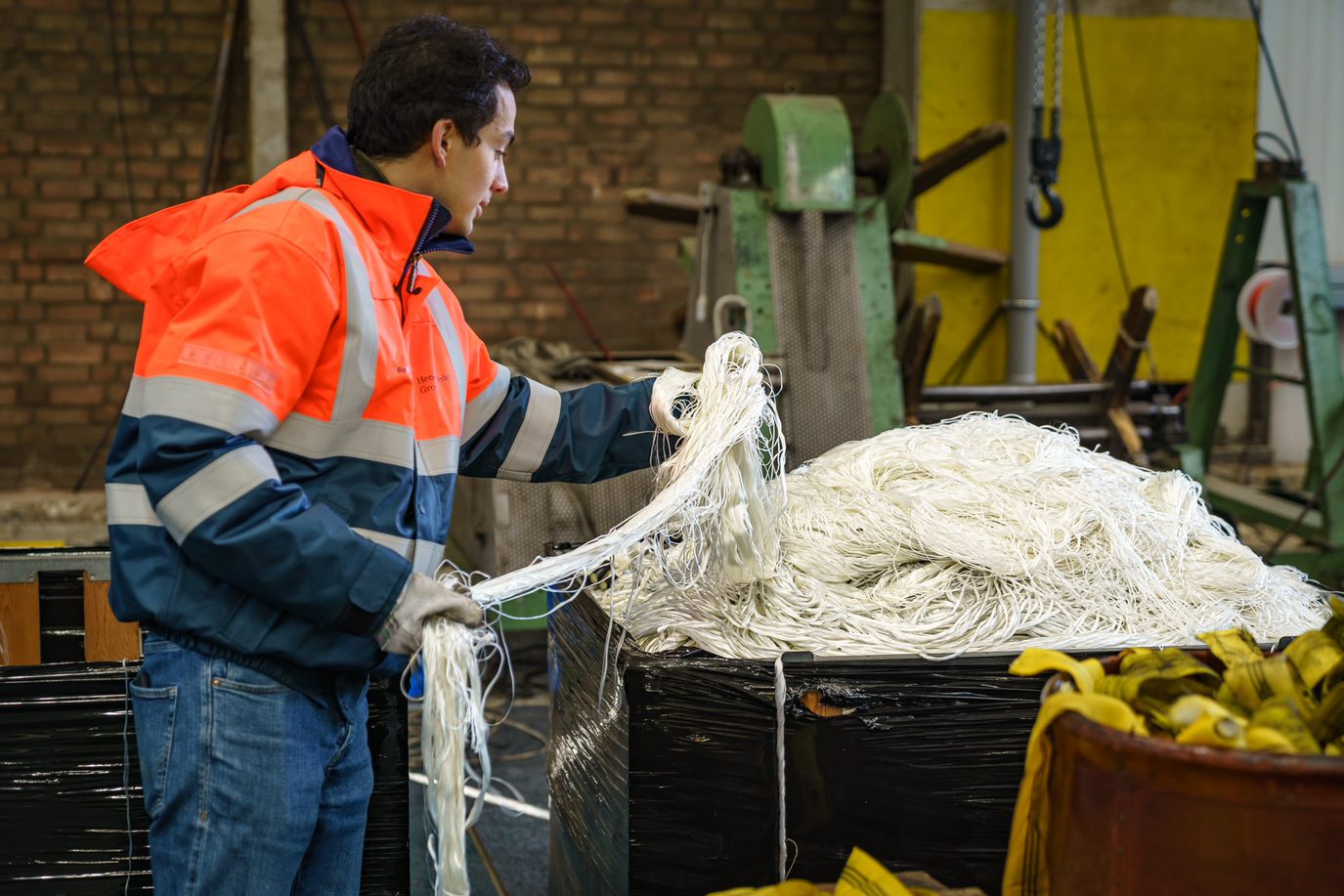The UK branch of steel wire and fibre products and services provider Hendrik Veder Group is celebrating the success of a recent trial project that saved 36.000kg of CO2 emissions.
Hailed as a landmark development by the European leader, the project, arranged and delivered on behalf of a global leader in the energy industry, was the trial stage for a new innovative and sustainable circular fibre rope project.
Utilising its strong network of partners and a 15+ year vendor relationship, Hendrik Veder Group’s Aberdeen office identified the cost-effective and sustainable solution before coordinating the inspection, collection, and processing of around 18 Metric tons worth of used lifting slings.
Following the collection of synthetic lifting and mooring equipment, the circular process applied allowed raw materials to be salvaged and adopted into a closed-loop recycling formula. From this, the raw materials can be repurposed into new products to be used by operators.
The sustainability-focused project, delivered in collaboration with its Rotterdam branch, proved to be incredibly effective, saving not just emissions but the time and costs involved in comparison with incineration processing – the route which operators traditionally take, including both the cost of incineration and the necessary transport. Hendrik Veder also found that the commercial value of the initiative was much higher than the initial cost of the set-up.
As part of Hendrik Veder Group’s commitment to providing alternative, sustainable solutions to industry standards, the project allowed end-of-life equipment to be converted into new raw materials, with the slings and ropes being processed to minimise disposal and avoid concerns about landfill efficiencies.
The completion of the pilot initiative provided the promise of similar projects in the future for Hendrik Veder Group.
Discussing the success of the trial, Managing Director Bertwin Zonneveld said: “The success of this pilot initiative has shown fantastic promise, providing a sustainable alternative to high-carbon producing industry standards. Early signs as a result of the trial showed that if circular rope projects like this were implemented on a structural level, operators have the chance to substantially reduce their carbon footprint, saving as much as 36.000kg of CO2 emissions. An exciting solution that will contribute to operators who are looking to reach sustainability targets, it’s also cost-effective whilst providing an extra life cycle for products whenever possible.”

